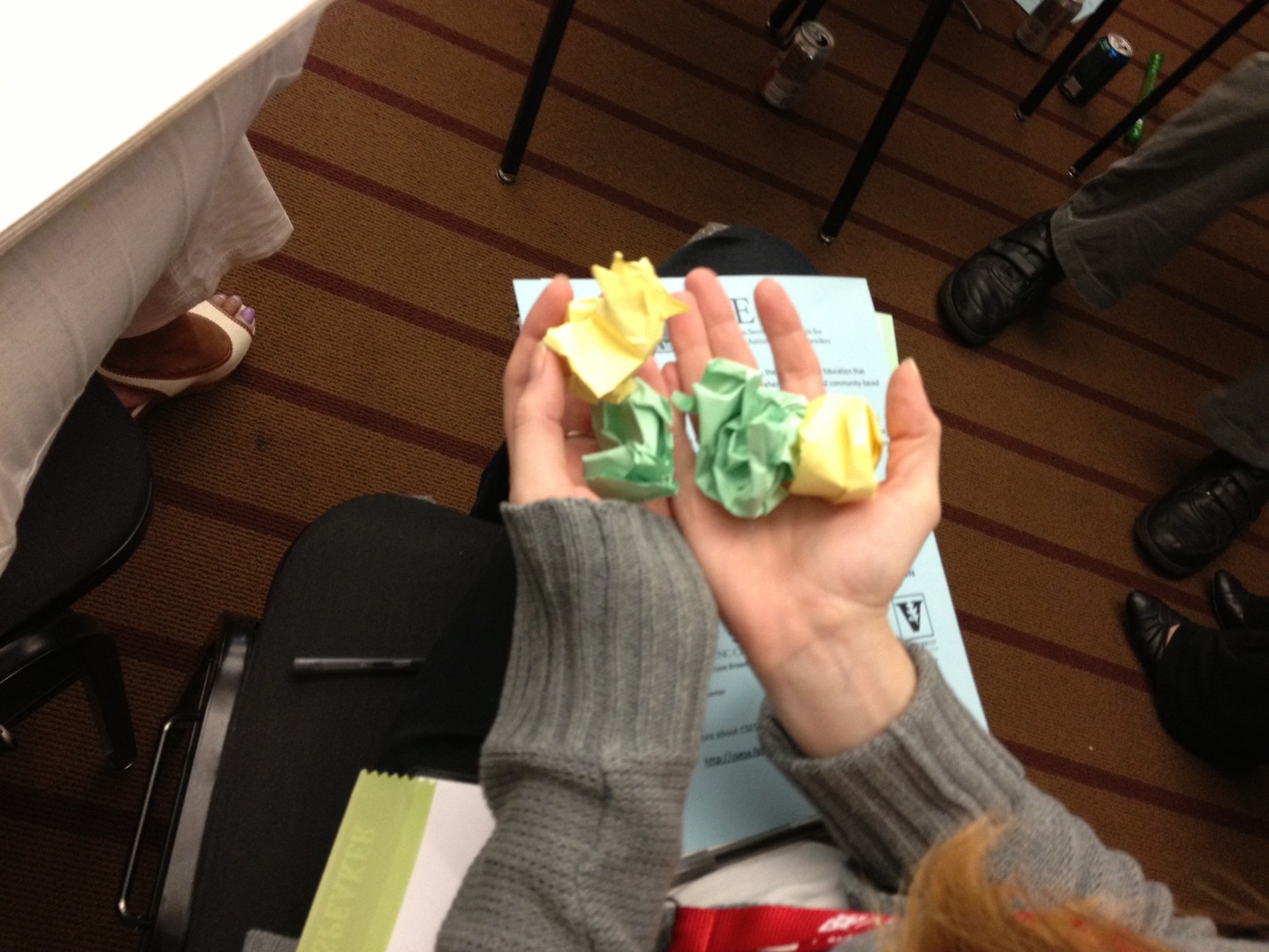
CSESA at ASA in Pittsburgh
CSESA holds preconference workshop entitled: “Rethinking high school: gathering your voices to create a national vision for adolescents with ASD”
CSESA attended this year’s Autism Society of America annual convention to gather important input from young adults on the spectrum, their families, and others regarding the needs of high school students with ASD. At the free workshop, the CSESA team picked the brains of the attendees for more than 3 hours! To cool things down on that hot July evening, participants engaged in a snowball fight! That is, they threw snowball sized wads of paper across the room with their thoughts about the best part of high school and the hardest part of high school. Read the responses in the news file at the bottom of the page.
Three themes were tackled during the interactive session: independence, social relationships, and technology. Here is just a sample of some of the questions and responses:
-
How can school staff, caregivers, and other service providers better support the development of independence for adolescents with ASD?
- Be black and white, teach the rule, give a choice, explain what it looks like
- Have student mentor someone younger/teach others (with support)
- Use visual schedules and social stories
- Inclusion is important to shape independence
-
What do social relationships and friendships look like to you in high school?
- Organized group social activities like “lunch bunch”
- Hard to understand, relationships confusing, roles confusing, gray areas
- Mean cliques, bullies
-
What strategies work to improve social relationships in high school?
- Use individual interests and strengths
- Fulfill the individual’s expectations not the parents or teachers
- Peer mentors
- Structure activities, clubs and sports help
-
Have you encountered problems or challenges using technology in your school?
- Hard to find school staff who know how to use it (even basics!)
- Overuse can be isolating, can interfere with or replace social interactions
- Can draw attention to differences
- Teacher reluctance to allow technology-based assignments

